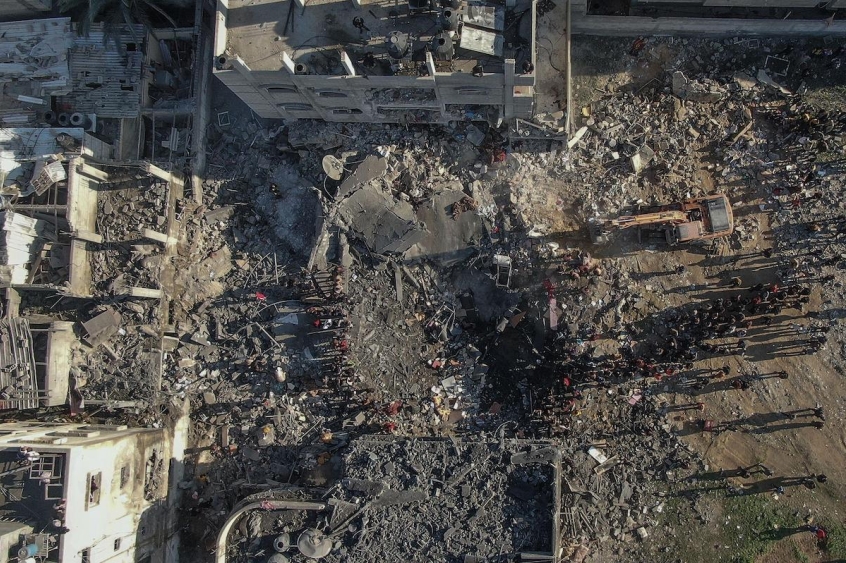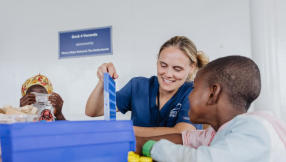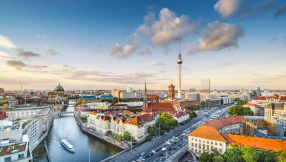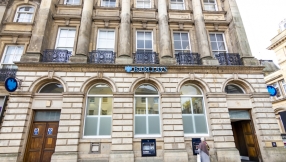
Christian Today speaks to Jamie Eyre, Embrace the Middle East's Director of Programmes, Partnerships and Advocacy, about the crisis in Gaza and how Christians are supporting those in need.
What are you hearing back from your partners on the ground in terms of the most urgent need?
The most urgent need is a ceasefire. Until the fighting stops there will be more needless death and suffering, and the delivery of aid will continue to be very difficult. In the north, there is a very active warzone and the small groups of Christians sheltering in two church compounds are caught right in the middle of it, which has been tragically brought to light by the deaths of two women at the Holy Family Church over the weekend. In the south, there are reports that some of the aid getting through has been looted. Our contacts in Jerusalem have not heard anything directly from our partners for four days because communication has become so bad, and that has only added to the challenges.
Your partners are there on the ground in the warzone. Do you know how they are coping on a personal level?
People have the same fears as we would if we were in their situation. One partner we spoke to is concerned for his children because nowhere is safe for them. So many homes are destroyed or unreachable, and life is completely disrupted. The healthcare system has completely collapsed and getting medicines has become virtually impossible, meaning even minor health complaints are now a major problem for people.
One of our trustees is Munther Isaac, a Lutheran priest in Bethlehem. When I last spoke with him recently, that morning he had been comforting a family in Bethlehem with an elderly relative in Gaza who had passed away because they couldn't get access to the treatment they needed. It was a serious condition but it was treatable, and that is a problem for so many people. On top of the 20,000 people who have been killed directly in the fighting, there is the knock-on effect on people who need regular treatment.
Just a few weeks into the conflict, it was already being reported that diarrheal diseases and stomach complaints were increasing among young children. That problem will have only worsened because people no longer have access to good nutrition, and they are living in unsanitary conditions with no running water, crammed into small spaces in makeshift IDP camps in the south or churches in the north.
How are your partners responding and how is Embrace supporting them?
We were able to provide funds for medicines at the Al-Ahli Hospital in Gaza City, which is run by the Diocese of Jerusalem, and we also provided extra funds to cover the costs of overtime because staff have been working 24/7. Our friends at the Near East Council of Churches (NECC) are offering psychosocial work in the south but it is limited due to the conflict, and they have been forced to work out of other organisations' offices because their clinic near Rafah was completely destroyed. A common theme among many of our partners has been the damage or complete destruction of their buildings in this fighting. We were helping to fund a marvellous Arab Orthodox cultural centre in Gaza city. It was a fantastic building providing services to the community and had nearly reached its break-even point. That building has been completely destroyed in the fighting, its services have stopped, and people have lost a livelihood. The NECC's offices in Gaza City have been seriously damaged so even when fighting stops, it's going to be very difficult for them to get back on their feet. These are just a few examples but there will be many more in the same situation.
Is your impression that there is no safe place for people in Gaza?
Yes, for many it certainly feels that way. A difficulty in this war is the size of the Gaza Strip. When wars break out in larger countries, it gives people more opportunity to escape to a safer part of the country. In the case of the Gaza Strip, it is only about 25 miles long and about 7.5 miles wide so it is a very small piece of land, and the border with Israel and to the south with Egypt is blocked. The bombing and fighting are widespread, and many people simply have nowhere else to go or don't have a home to go back to. So many buildings have been damaged, and the livable area has been dramatically reduced. For the Christians sheltering in the church compounds in the north, we hear that they are living in fear that they are surrounded by snipers so they simply don't feel safe to move around.
How can Christians here in the UK support and pray for your work and partners in Gaza?
The first thing to say is: don't look away. It's very easy to hear about all the horrific things happening and not want to look at it, but we need to bear witness to what's happening there. The second thing is to pray for a sustainable ceasefire because this is the only thing that will allow the situation to change. Thirdly, people can write to bishops in the House of Lords and their MPs to lobby for a ceasefire. We welcome the UK government's recent comments about a sustainable ceasefire but we want to see actions and not only words. And we need to pray to God in his sovereign will for peace and to soften people's hearts because nothing is impossible for him. Finally, you can give. We have an appeal running that will allow us to provide funds for more support inside Gaza and related to this conflict when it is possible to do so. Be an activist where you can but also pray and give if you feel called.













